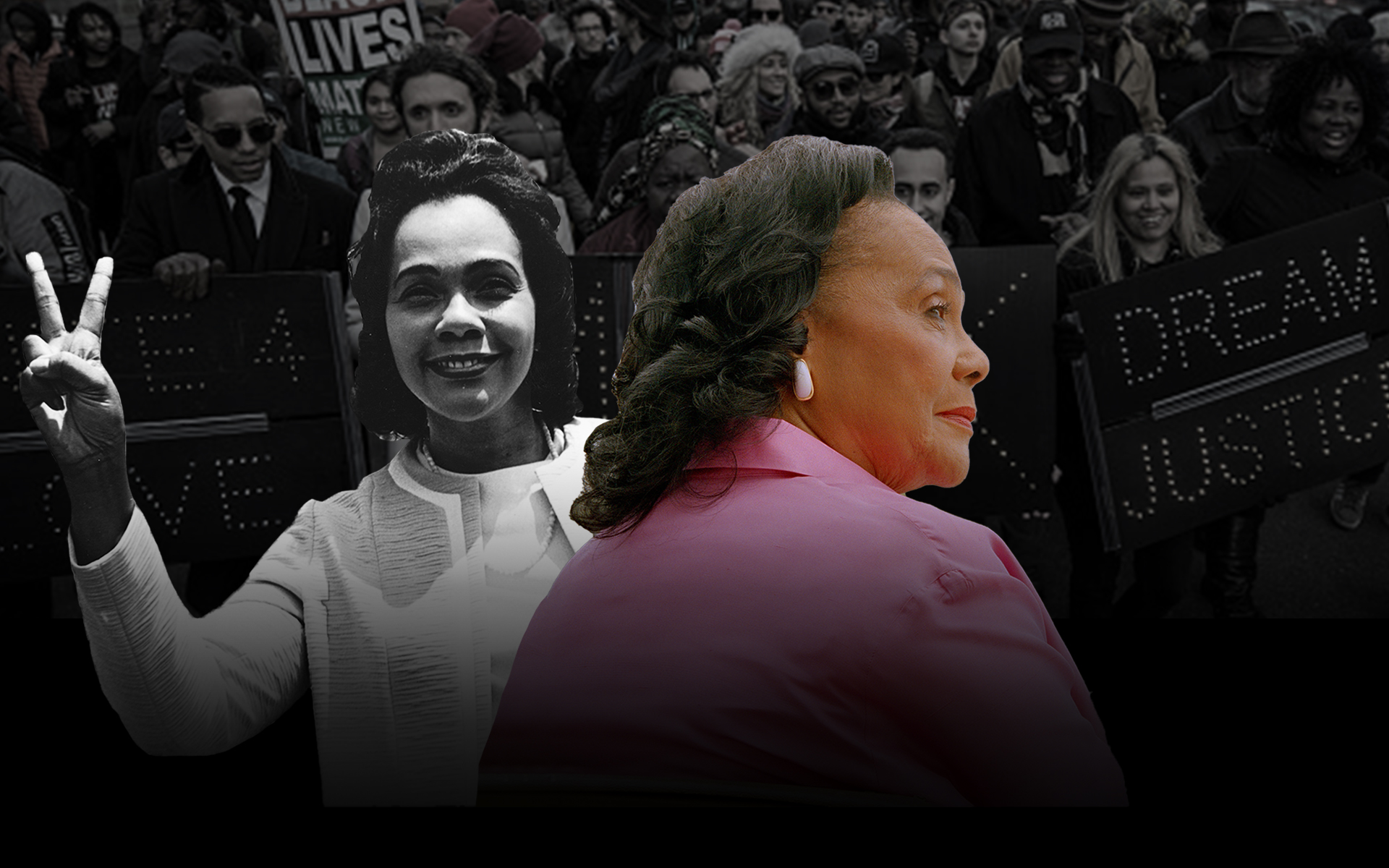If one word could define America in 1968, "frightening" would be it. Despite the terrifying time, civil rights activist Coretta Scott King delivered a series of prominent speeches that shined light, on one of America's darkest periods.
It was an election, Olympic and leap year, much like 2020. But in 1968, young men were actually getting drafted and shipped to a full fledged war. In fact, the draft had peaked to 35,000 soldiers a month and the total number of U.S. fighters stationed in Vietnam had surmounted to at least half a million. America's war on communism had resulted in countless military and civilian deaths.
Additionally, Sen. Robert F. Kennedy was shot and killed in a L.A. hotel kitchen, while campaigning for the Democratic ticket. Prior to Kennedy's tragic murder, Coretta Scott King's husband, the iconic civil rights leader Dr. Martin Luther King Jr., was assassinated on a Memphis hotel balcony. That's not even half of the mayhem that took place. To say the least, 1968 was — a lot.
When we look back at the height of the civil rights movement, many indisputable giants kept the cause in motion. Coretta Scott King stands among those giants and MLK's murder, on April 4, only strengthened her commitment.
"I also became married to the cause," Coretta Scott King told the American Academy of Achievement in a 2004 interview. "It was my cause and that's the way I felt about it. And so when my husband was no longer there, I could continue in that cause."
The speeches she delivered, and the crucial time in which she delivered those speeches, cemented the King family's legacy and made it clear that the civil rights movement was not even close to being over. Coretta Scott King was a force and her 1968 speeches prove it.
1. April 27, 1968: "Until The Last Gun Is Silent" Speech
Location: Central Park, New York City, NY
YouTube | Matthew Siegfried
Coretta Scott King could have simply shown up to the Central Park peace rally, said nothing and still inspired the crowd. Her presence alone, less than a month after her husband's death, spoke volumes. But, of course, she did more than just show up. She took her husband's place and delivered his notes regarding the Vietnam War. After enlisting the notes that were discovered on scraps of paper in his coat pocket, Coretta Scott King personally addressed the crowd.
"…the work of peacemaking must continue until the last gun is silent. I come to you in my grief only because you keep alive the work and dreams for which my husband gave his life. My husband derived so much of his strength and inspiration from the love of people who shared his dream, that I too now come hoping you might strengthen me for the lonely road ahead." — Coretta Scott King
She closed her speech, presenting women as "the best and last hope for a world of peace and brotherhood."
2. June 19, 1968: "Solidarity Day Address"
Location: Resurrection City, Washington, D.C.
YouTube | Matthew Siegfried
MLK organized the Poor People's Campaign, a movement against poverty, before his death. On June 6, In an eerily familiar fashion, Sen. Kennedy's assassination shook the nation. Appropriately, Coretta Scott King began her speech with a short message from the beloved senator's wife, Ethel Kennedy. After reading Ethel's message and serenading the crowd with the hymnal "Come By Here, My Lord, Come By Here," Coretta Scott King made it clear that "racism, poverty and war" were the epitome of violence.
"In this society, violence against poor people and minority groups is routine. I remind you that starving a child is violence. Suppressing a culture is violence. Neglecting school children is violence. Punishing a mother and her child is violence. Discrimination against a working man is violence. Ghetto housing is violence. Ignoring medical needs is violence. Contempt of poverty is violence. Even the lack of will power to help humanity is a sick and sinister form of violence." — Coretta Scott King
In urging to end all forms of violence, Coretta Scott King directed her attention to women leadership, once again.
3. July 1, 1968: "We May Yet Not Only Survive, We May Triumph" Speech
Location: Harvard University, Boston, Mass
YouTube | Harvard University
Among her most popular 1968 speeches, Coretta Scott King, addressed Harvard University's 1968 graduating class. Though MLK was originally scheduled to speak, the students extended the invitation to Coretta Scott King. This made her the first woman to deliver the Harvard's Class Day speech. She encouraged the students to use their individuality and personal creativity for the common good.
"In a power drunk world where, means begot ends, and violence becomes a favorite past time, we are swiftly moving towards self-annihilation. Your generation must speak out with righteous indignation, against the forces, which are seeking to destroy us." — Coretta Scott King
For Coretta Scott King, 1968 wasn't the beginning of activism, but it was a critical point. With the country in complete turmoil she withstood the hardship and securely established the legacy that she shared with her husband. A legacy of nonviolence, peace and equality. But all this comes as no surprise because, as she would say, "Struggle is a never ending process. Freedom is never really won, you earn it and win it in every generation."
